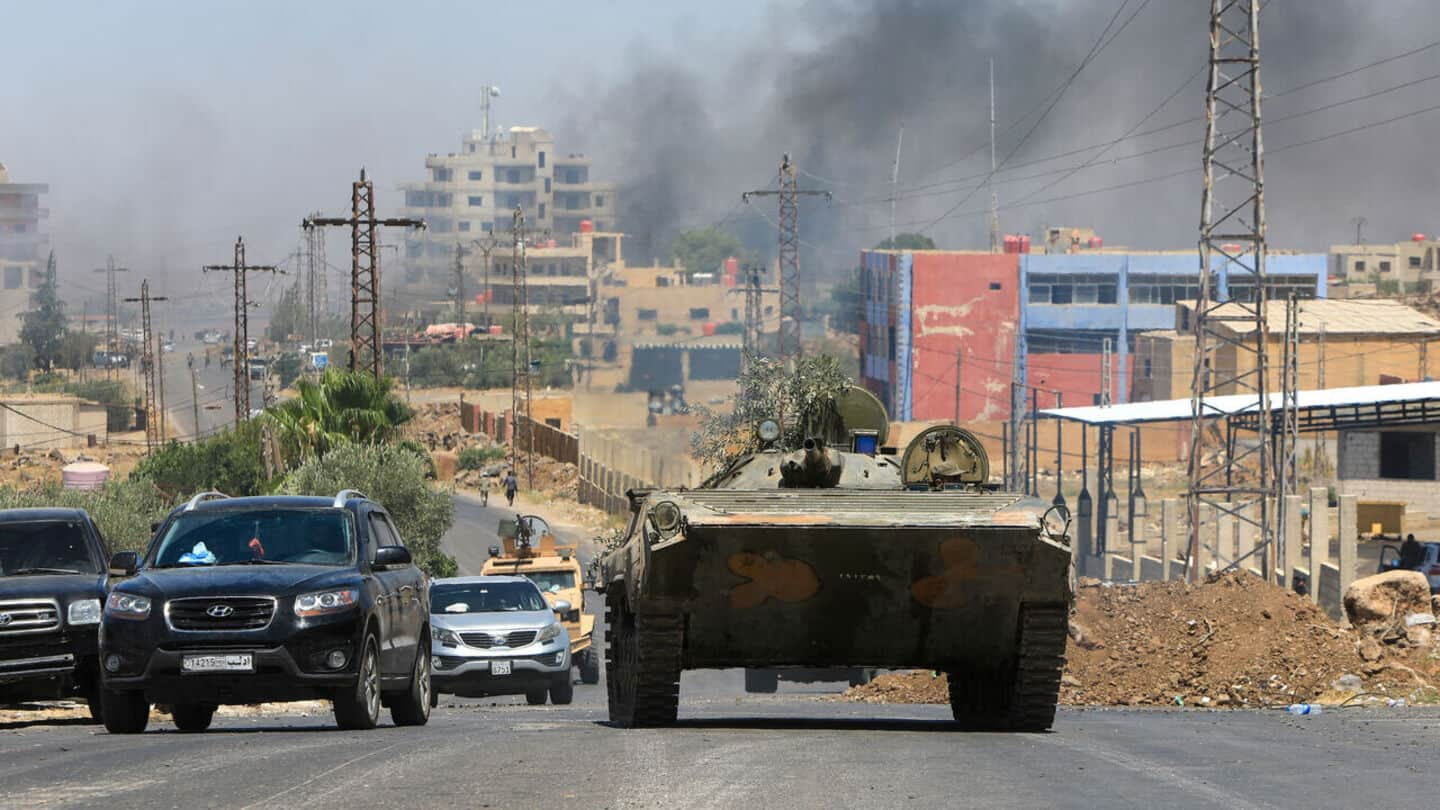
Who're Druze; why Israel is bombing Syria to protect them
What's the story
Israel has intensified its military operations in southern Syria, targeting Syrian government forces in Suwayda. Dozens of people were killed in Suwayda this week when clashes broke out between Bedouin tribes and Druze militias, prompting the Syrian army to step in. The violence has also drawn the attention of the United States, which has urged Israel to cease its strikes. However, Israeli Defense Minister Israel Katz warned of escalating attacks if Syrian forces don't withdraw from Suwayda.
Community plea
How clash started
According to the Syrian Observatory for Human Rights, the skirmishes began when members of a Bedouin tribe set up a checkpoint, where they attacked and robbed a Druze man, resulting in tit-for-tat attacks. To restore order, government security personnel were deployed, but they were perceived to be siding with Bedouin tribes. Israel, which previously acted or threatened to intervene in Syria to protect the Druze, then intervened, stating on Monday that it had bombed military tanks in southern Syria.
Druze background
Who are the Druze?
The Druze, an Arab sect of about one million people mainly residing in Syria, Lebanon, and Israel, have a unique religious identity that prohibits conversion. In southern Syria's Suwayda province, they form a majority. The community lives in the Golan Heights, a strategic plateau seized by Israel from Syria during the Six-Day War in 1967 before formally annexing it in 1981. The Druze share the region with approximately 25,000 Jewish settlers scattered over more than 30 settlements.
Israeli Druze
Israel declared a demilitarized zone in southern Syria
Unlike other minorities, Druze men in Israel have been conscripted into the military from age 18 since 1957, and many have risen to positions of high rank, while others have pursued jobs in law enforcement and security. The Israeli government has also declared a demilitarized zone in southern Syria to prevent the introduction of forces and weapons. However, this move has been rejected by the Syrian government and the international community as a violation of sovereignty.
Diplomatic efforts
US expresses concern; Israel continues military operations
The United States has expressed concern over the situation, with US special envoy Tom Barrack saying they are working toward a peaceful outcome for all parties involved. Despite US pressure to normalize relations with Syria under its new government, Israel continues its military operations. Israeli Foreign Minister Gideon Saar has expressed interest in expanding peace agreements to include Syria and Lebanon while safeguarding Israel's security interests.